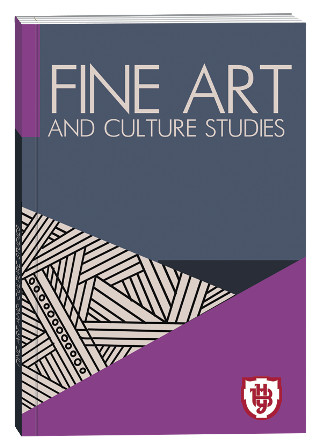THE POETRY OF THE ‘UKRAINIAN SCHOOL’ IN A MUSICAL READING BY OSKAR KOLBERG
DOI:
https://doi.org/10.32782/facs-2025-3-1-29Keywords:
Polish Romanticism, poetry of the ‘Ukrainian school’, vocal lyrics, folklore, ethno-cultural borderlandAbstract
The article deals with the peculiarities of vocal interpretation of poems by representatives of the ‘Ukrainian school’of Polish literary romanticism. Attention is focused on elucidating the specifics of Oskar Kolberg’s compositionalapproach to the interpretation of poetic texts of the ethno-cultural borderland. The methodology of the research is based on the methods of historical musicology and cultural studies, among which the genre-stylistic and comparative analysisof samples of Polish vocal lyrics of the first half of the nineteenth century are chosen as the leading ones. The emphasis is placed on the comparison of the worldview positions and creative intentions of F. Chopin and O. Kolberg in the contextof the formation of the Polish compositional school. This determined the scientific novelty of the study and allowed us to formulate conclusions. It was found that the formation of prominent Polish musicians, students of J. Elsner, took place in the artistic environment of Warsaw before the November Uprising. The future composers were brought together by a common circle of poets, among whom were natives of the Ukrainian territories. Their admiration for the poetryof Józef Bohdan Zaleski and Stefan Witwicki inspired F. Chopin and O. Kolberg to write vocal miniatures. The composers revealed individual strategies of working with the poetic source, which testifies to the independence of creative decisionsin the song ‘Spring’ to the words of S. Witwicki. The role of the Polish national colouring in the vocal lyrics of Kolbergand Chopin is noted, which contributes to the deeper psychology of poetic images. The affinity of the Romantic composers’attitude to vocal music as a kind of intimate diary, which recreates the atmosphere of the moods of national liberation aspirations and defeats of Polish patriots, is traced.
References
Бернацька-Гловаля Е. І. Польська аматорська пісня ХІХ ст. у львівському культурно-мистецькому континуумі. Наукові збірки Львівської національної музичної академії імені М. В. Лисенка. Львів, 2017. Вип. 40. С. 119–133.
Кияновська Л. О. Стильова еволюція галицької музичної культури ХІХ–ХХ ст. Тернопіль : Астон, 2000. 340 с.
Круліковська Т. П. Творчість польських композиторів Поділля XIX століття в контексті українсько-польських культурних взаємин : дис. ... д-ра філософії за спец. 025. Львів, 2023. 272 с.
Ніколаєва Л. М. Вокальна творчість Ф. Шопена і питання виконавського музикознавства. Українське музикознавство. 2016. Вип. 42. С. 251–266.
Радишевський Р. «Українська школа» в польському романтизмі: феномен пограниччя. Київ : Талком, 2018. 704 с.
[M. M.] O naszym poecie Bohdanie Zaleski. Krakow,1903. 47 s.
Idaszak D. Twórczość kompozytorska Oskara Kolberga. Oskar Kolberg. Dzieła wszystkie. T. 68. Kompozycje wokalno-instrumentalne. Poznań, 1990. S. 5–33.
Korespondencja Oskara Kolberga. Cz. II (1877–1882). Oskar Kolberg. Dzieła wszystkie. T. 65. Zebrała i opracowała M. Turczynowiczowa. Rec. i konsultant Z. Szweykowski. Opracowanie komentarzy i red. A Skrukwa i E. Krzyżaniak- Miller. Wrocław-Poznań 1966. 740 s.
Kościuk А. “Nikt mię za próżniaka nie ma i mieć nie będzie”. O życiu Oskara Kolberga (1814–1890). Twórczość Ludowa, 2014, nr. 1–2 (76). S. 1–5.
Oskar Kolberg. Dzieła wszystkie. T. 68. Kompozycje wokalno-instrumentalne, oprac. D. Idaszak, red. H. Pawlak. Poznań 1990. 680 s.
Prochaska M. Kompozycje Oskara Kolberga. Oskar Kolberg. Człowiek i Dzieło. Poznan, 2022. S. 137–164.
Tomaszewski W. Literatura do śpiewania. Nuty z tekstem w ofercie wydawców na ziemiach polskich w latach 1801–1875. Sztuka edycji. T. 4. Toruń, 2013. S. 67–73.








